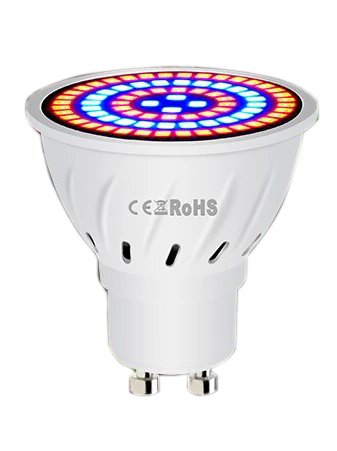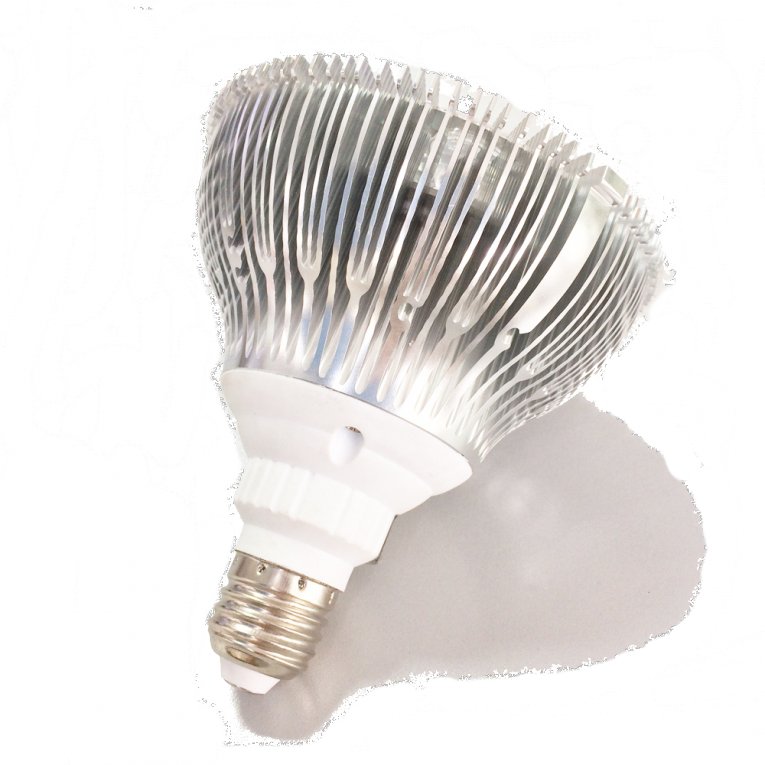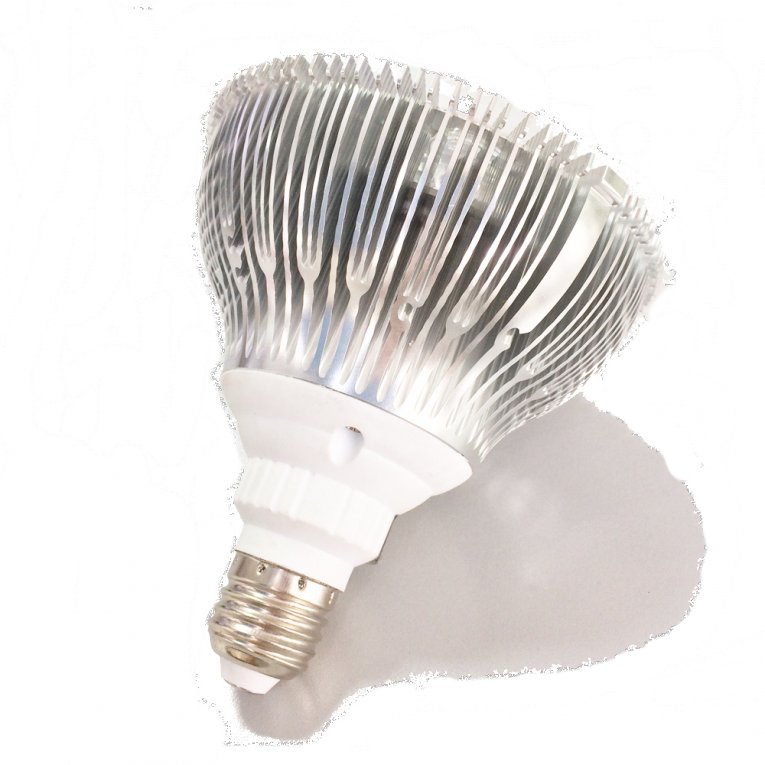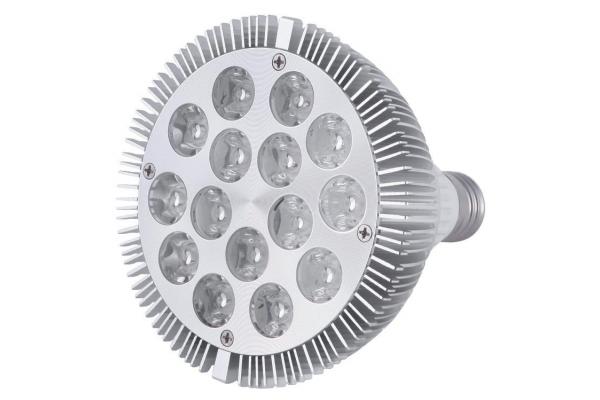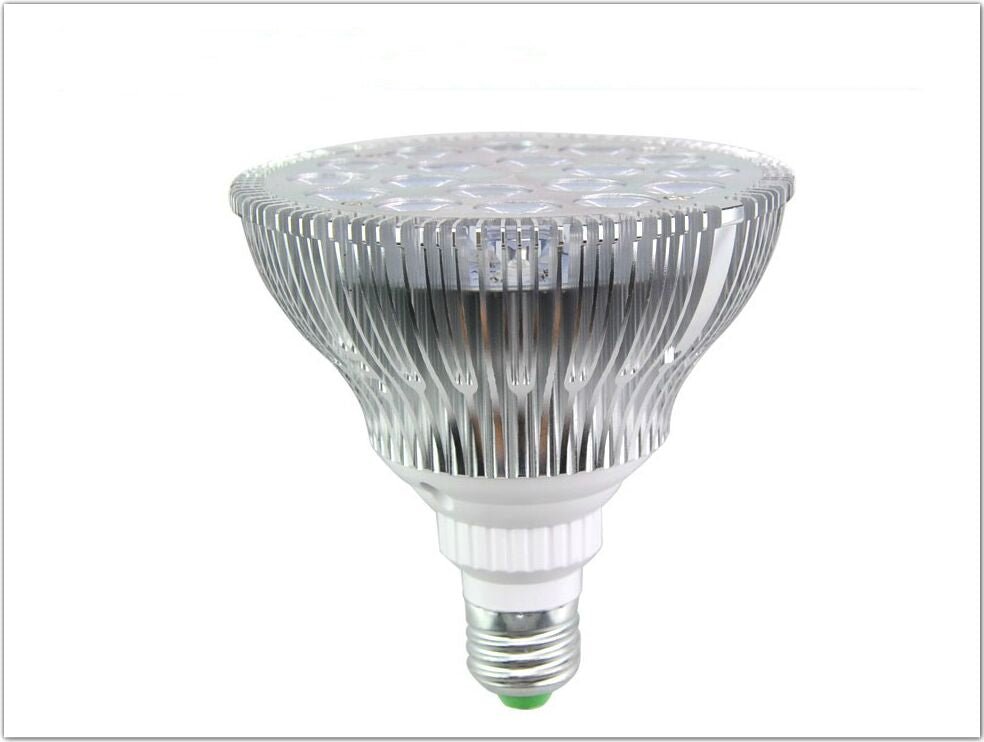Load products ...
E27 LED Growth lamp 15 Watt White Full Spectrum
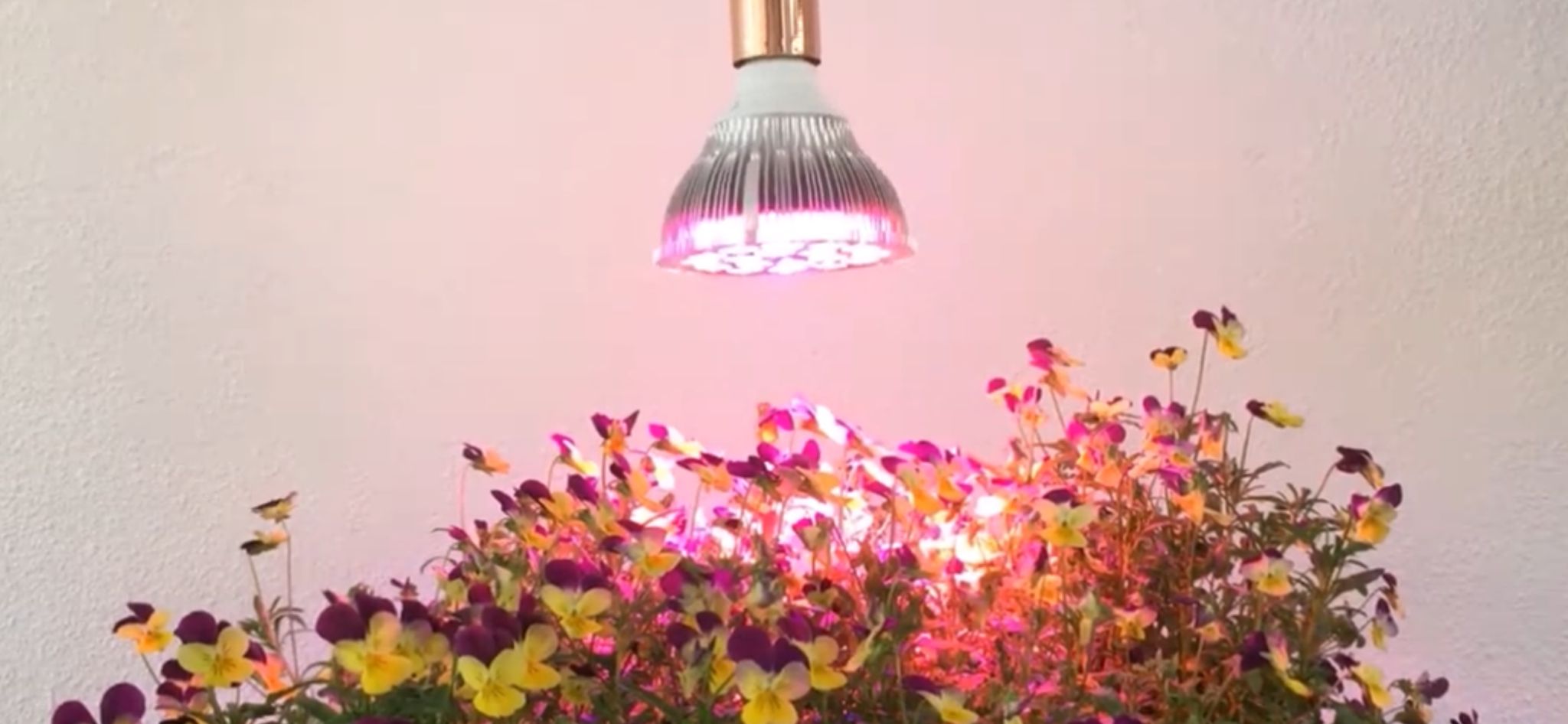
Par/e27 LED growth lamps
Light: the key to lush plant growth
Light is a crucial factor in the life of plants, since it is the driving force behind the photosynthesis process. If plants do not receive sufficient light, this can lead to numerous problems, including slow growth, weak stems and even the absence of flowers and fruits. It is therefore essential to provide your plants with the right amount and quality light, and that is exactly where par/e27 LED growing bulbs excel.
The benefits of Par/E27 LED growth bulbs
1. Efficient light spectrum
Our Par/E27 LED growth lamps are designed with an optimized light spectrum that perfectly matches the needs of plants in different growth tribes. From seedlings to mature plants, these lamps provide the right light to stimulate photosynthesis, resulting in healthy, lush growth.
2. Energy efficiency in action
Energy efficiency is a characteristic of our growth lamps. With LED technology they can produce powerful light with minimal heat emission. This not only saves on energy costs, but also creates an ideal environment for plants without the risk of overheating.
3. Simple installation, great results
With the convenience of a standard E27 fitting, our growth bulbs are easy to install. Without hassle you can immediately start improving the lighting conditions for your plants. This means less time spent on installation and spend more time on admiring your lush plants.
4. Sustainability that continues
Sustainability is an integral part of our growth lamps. The sustainable construction ensures long -term performance, which is not only good for the environment, but also relieves your wallet by minimizing the costs of replacement.
Light deficit: A problem that should not be ignored
One of the biggest challenges with which plant lovers are confronted is a lack of light. Plants that receive insufficient light often show signs of stress and unhealthy growth. In the following sections we will elaborate on the symptoms of light shortage and how par/e27 LED growing lamps can act as the ultimate solution.
Symptoms of light deficiency in plants
-
Slow growth: Plants that receive insufficient light often grow slowly. This is because the photosynthesis processes, which are essential for growth, are not sufficiently stimulated.
-
Stretching stems: If plants do not have enough light, they extend to the available light, resulting in weak, elongated stems. This phenomenon is known as etiolation.
-
Yellow discoloration of leaves: A clear sign of light shortage is the yellow discoloration of leaves. This indicates a reduced production of chlorophyll, the pigment responsible for the green color of leaves.
-
Great flowers and fruits: Plants need enough light to bloom and produce fruits. A lack of flowers and fruits can indicate insufficient light levels.
Par/e27 LED growth bulbs as a solution
The perfect light spectrum
One of the most important advantages of par/e27 LED growth lamps is their ability to deliver the ideal light spectrum for plant growth. These lamps are designed with carefully selected wavelengths that correspond to the peak absorption areas of Chlorophyll, the pigment responsible for photosynthesis.
This means that every phase of the growth of your plants is supported, from the initial germination and vegetative growth to the flowering phase. The result is a healthy, balanced growth with optimum yield.
Energy efficiency in action
Another characteristic that distinguishes par/e27 LED growth lamps is their energy efficiency. Traditional lighting systems, such as incandescent lamps or fluorescent lamps, often generate a lot of heat, which not only results in higher energy costs, but also increases the risk of overheating for your plants.
In contrast to this, our LED growth bulbs produce little heat, so that the lighting conditions are optimized without the risk of temperature stress for your plants. This not only makes them more cost -efficient, but also safer and better for the health of your plants.
Easy installation for direct results
The installation of our Par/E27 LED growth lamps is simple and requires no technical skills. With the familiar E27 fitting, the lamps can be screwed directly into standard fixtures. This makes upgrading your current exposure system effortless and
- If you choose a selection, the page will be completely renewed.
!

